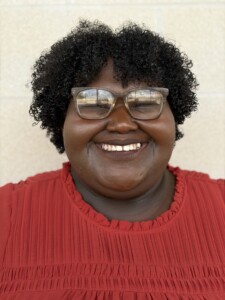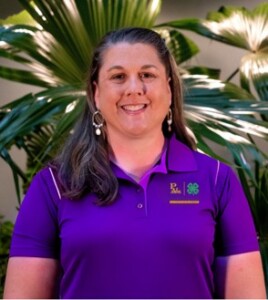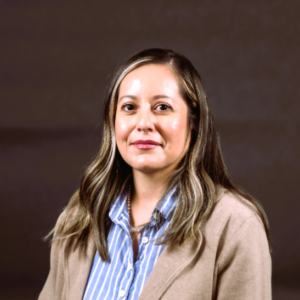4-H Youth Development
What is 4-H?
4-H and Youth Development prepares youth to meet the challenges of childhood, adolescence and adulthood, through a coordinated, long-term, progressive series of educational experiences that enhance life skills and develop social, emotional, physical and cognitive competencies.
4-H Is…
Learning by doing, and is available to all boys and girls in the 3rd through 12th grades, from urban, suburban and rural areas. First, an adult leader brings together youth that have common interests. Second, the youth chooses one or more projects. Projects are chosen from among 100 project areas offered, or if you don’t see the one you like, you can create your own project. Third, the group enrolls as a club, and fourth meets together to learn and have FUN. Clubs are able to explore 4-H activities, events and trips. In 4-H, there are events happening all year round.
We offer
The program provides outreach and non-formal education to limited resource youth. 4-H exists to provide meaningful opportunities for youth and adults to work together to create sustainable community change. The 4-H Healthy Living engages youth and families through access and opportunities to achieve optimal physical, social, and emotional well-being. Life skills have been identified as a key resource for the positive, productive development of youth because it addresses what they must have to function well in society as they find it. Life skills address what young people must have to function well in society as they find it.
Healthy Living
- Junior Master Gardener
- Winning with Nutrition
Science
- Agriculture
- Archery
- Egg to Chick
- Outdoor Education
- Photography
- Robotics
- Water Education
College Preparation and Career Exploration
- AgDiscovery
- Career Awareness and Youth Leadership Laboratory
- San Antonio Livestock Exposition Scholars
- Pre-College Outreach Resources
Citizenship and Leadership
- Heroes 4-Health
The 4-H model, in particular, uses volunteers as the core component of program delivery to youth. This program provide volunteers training in leadership, civic engagement, and service learning. The program also encompass subject matter workshops for volunteers, including those that contribute to certification and continuing education programs.
- Heroes-4-Health
- Archery Project
- Ten County Camp
- Angler Education Certification
Coming Soon!
Igniting Sparks
PVAMU Extension 4-H Program Events Calendar
PVAMU Extension 4-H Program Videos
@statepvamu4h
Meet our Staff
At Headquarters
In the County
In accordance with Federal civil rights law and U.S. Department of Agriculture (USDA) civil rights regulations and policies, the USDA, its Agencies, offices, and employees, and institutions participating in or administering USDA programs are prohibited from discriminating based on race, color, national origin, religion, sex, disability, age, marital status, family/parental status, income derived from a public assistance program, political beliefs, or reprisal or retaliation for prior civil rights activity, in any program or activity conducted or funded by USDA (not all bases apply to all programs). Remedies and complaint filing deadlines vary by program or incident.
Persons with disabilities who require alternative means of communication for program information (e.g., Braille, large print, audiotape, American Sign Language, etc.) should contact cmpierfax@pvamu.edu by email, call (936) 261-5028, or contact USDA through the Telecommunications Relay Service at 711 (voice and TTY). Additionally, program information may be made available in languages other than English.
To file a program discrimination complaint, contact Ms. Toya Douglas, M.B.A., Director of Equal Opportunity & HR Compliance, P.O. Box 519, Mail Stop 1337, Prairie View, TX 77446-0519, 936-261-1792; complete the USDA Program Discrimination Complaint Form, AD-3027, found online at How to File a Program Discrimination Complaint and at any USDA office; or write a letter addressed to USDA and provide in the letter all of the information requested in the form. To request a copy of the complaint form, call (866) 632-9992. Submit your completed form or letter to USDA by: (1) mail: U.S. Department of Agriculture, Office of the Assistant Secretary for Civil Rights, 1400 Independence Avenue, SW, Mail Stop 9410, Washington, D.C. 20250-9410; (2) fax: (202) 690-7442; or (3) email: program.intake@usda.gov.
USDA is an equal opportunity provider, employer, and lender.






















